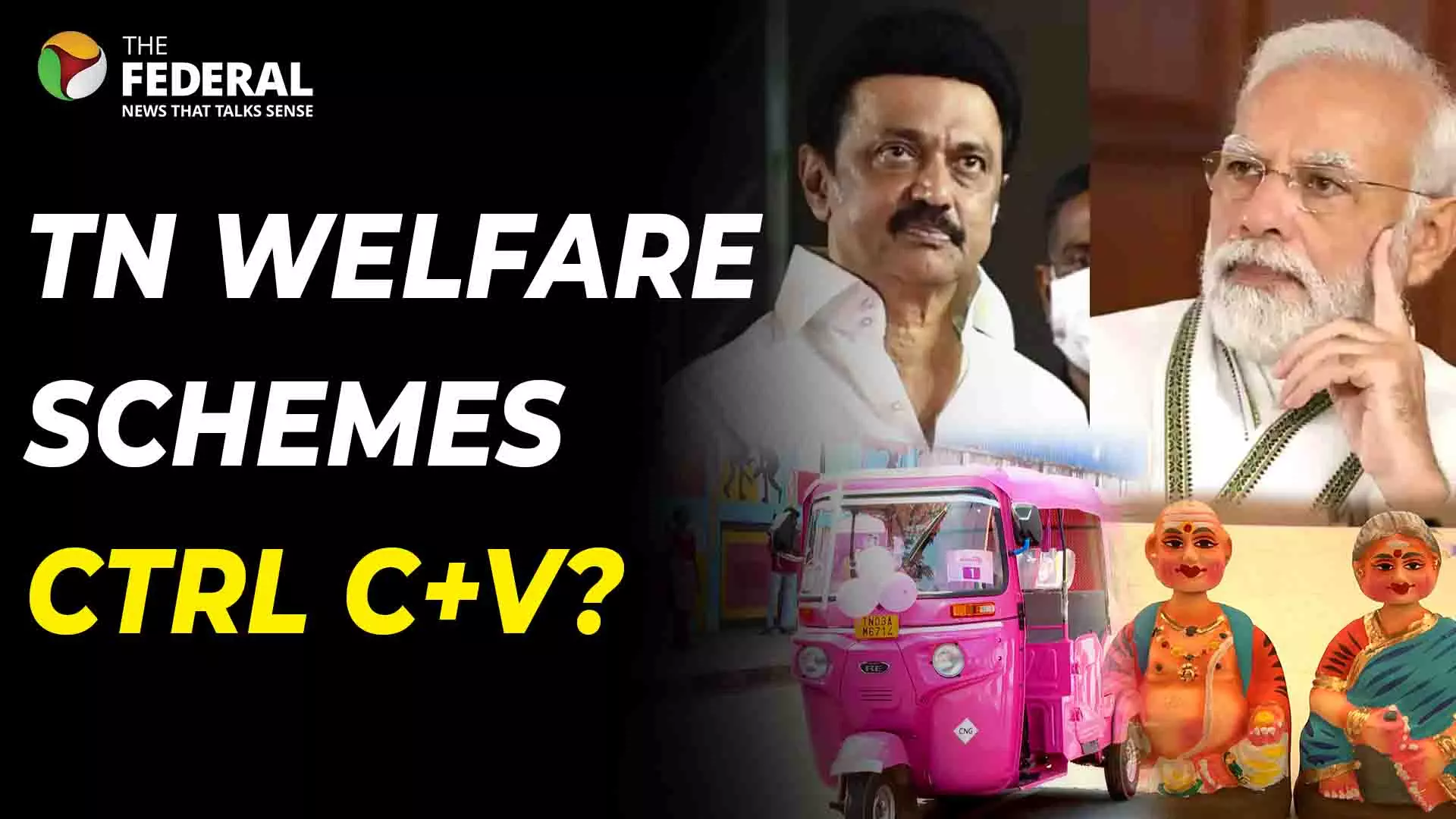
Tamil Nadu govt’s welfare schemes spark clash with Centre
Are DMK’s new schemes a strategy to challenge the BJP narrative ahead of the 2026 polls? Are they simply copies of Central projects?

Tamil Nadu has launched two major welfare schemes—the Kalaignar Kaivinai Thittam for artisans and the Pink Auto Scheme for women drivers. These mirror the Centre’s PM Vishwakarma Yojana and similar schemes for women’s mobility.
While critics see this as mimicry, supporters argue the DMK government is tailoring its own welfare solutions for local needs. The timing has raised eyebrows as Tamil Nadu inches closer to the 2026 Assembly polls.
“These schemes are not brought to counter the Union’s schemes. Central schemes have hidden agendas,” said DMK spokesperson Saravanan.
BJP accuses DMK of deflection
BJP’s Tamil Nadu Vice-President Narayanan Tirupathi alleged that the state avoids central schemes to escape scrutiny and enable corruption.
“They run central schemes in disguise to loot funds and avoid accountability,” said Tirupathi.
He said the DMK repackages central programs to create its own narrative, dodging the Centre’s demand for transparent implementation.
Also read: TN: ED summons Tasmac top brass in ‘Rs 1,000-cr liquor scam’ probe
DMK defends policy direction
Saravanan dismissed the charges, claiming that central schemes like Vishwakarma reinforce traditional caste-based jobs.
“The CM announces schemes only after earmarking funds,” he said. “Our government ensures equitable benefit without hidden agendas.”
He emphasized that Tamil Nadu’s approach is rooted in progressive development, unlike what he called the Centre’s “regressive replication.”
Constitutional scope and governance
Economist Jyothi Sivagnanam added a constitutional lens to the debate, emphasizing that most central schemes are technically within the state’s domain.
“All these centrally sponsored schemes are state subject schemes. That is none of their business,” Sivagnanam said. “Article 282 clearly states that both central and state governments may spend for public purpose.”
Also read: Madras HC asks TN govt to file response to PIL seeking Ponmudy’s removal by June 5
He argued that the Centre often announces schemes not grounded in purpose but driven by visibility. “They rename old programs, cut funds, and invest more in advertising than implementation,” he said.
“Toilets without water, employment guarantees without jobs—this is what’s happening on the ground,” he added.
Tamil Nadu’s policy edge?
Sivagnanam cited Tamil Nadu’s example of upgrading its mental health hospital to TNIMHANS as a practical counter to the centrally backed NIMHANS in Bengaluru.
“Is this competition or just smart governance?” he asked.
He credited the state with meaningful innovation and consistent execution. “Tamil Nadu continues to implement effectively, with schemes others often follow,” he said.
The debate touches on a larger truth—states like Tamil Nadu are not just resisting central schemes; they are offering alternative models of governance.
Also read: With TN Governor’s powers curtailed but not eliminated, can he still hold VC meetings?
Governance or grandstanding?
With Assembly elections approaching in 2026, the clash between state and Centre over social schemes is not just ideological—it’s strategic. Whether Tamil Nadu’s localized solutions or Delhi’s national mandates gain more traction could shape the political narrative in the coming years.
So the question remains: Are these competing schemes political posturing—or a preview of the governance debate in 2026?
The content above has been generated using a fine-tuned AI model. To ensure accuracy, quality, and editorial integrity, we employ a Human-In-The-Loop (HITL) process. While AI assists in creating the initial draft, our experienced editorial team carefully reviews, edits, and refines the content before publication. At The Federal, we combine the efficiency of AI with the expertise of human editors to deliver reliable and insightful journalism.

